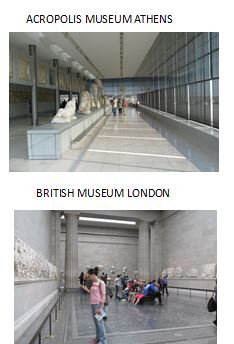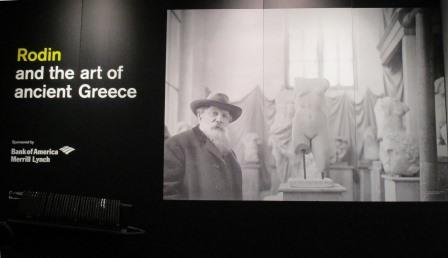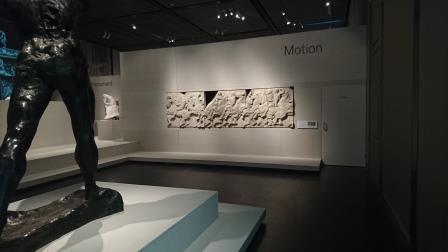25 April 2018
Janet Suzman DBE, Chair of the British Committee for the Reunification of the Parthenon Marbles (BCRPM) has hit back at claims the new Rodin exhibition at the British Museum is a justification for keeping the Parthenon Marbles in the British Museum.
According to the BCRPM the exhibition Rodin and the Art of Ancient Greece (26 April – 29 July 2018) may, as Director of the British Museum Hartwig Fischer sees it, place the sculptures 'in the context of world cultures', but the British Museum has always seen itself at the apex of 'world culture' museums.
"So what's new?" Asks Janet Suzman. "The Rodin exhibition hardly justifies the British Museum's implacable refusal to even discuss with Athens the notion of uniting the surviving pieces with their other halves. This outdated attitude is a relic of colonialism that should be immediately reviewed and righted by the Trustees. If the V&A, for one, can return objects to their country of origin, then the British Museum can too. The skies will not fall in."
Suzman continues: "I'd like to remind interested parties that although Rodin was much excited by the sculptures he saw in the Museum, and found them inspiring, he nevertheless lamented their exile from 'the sweet Attic sunlight beloved of Homer'. His words."
"Those sculptures, which we prefer to attribute to the Parthenon from whence they were grabbed rather than to Elgin the grabber, should now be relinquished back to the city they once crowned. They have inspired artists and thrilled the curious in their gloomy rooms in Bloomsbury for long enough and now the country of their origin deserves their glory, in the museum built especially to house them facing the Acropolis and the still miraculously upright building that they once adorned."
Experts say that the French artist, Auguste Rodin, drew inspiration from The Parthenon Marbles which were apparently his favourite works of art during his 15 visits to the British Museum from 1881 to 1917.
According to the British Museum this shows why the museum is the right setting for the Marbles, taken from the ruins of the Parthenon by Lord Elgin and brought to Britain over 200 years ago. Who is to say that Rodin might not have enjoyed a few trips to Athens for even greater inspiration?
The BCRPM argue if understanding world culture also means understanding history's mistakes, then (where possible) putting right old wrongs can promote cultural and international relations. Reuniting the Parthenon Marbles in Athens ought to be a possibility that supports world cultures for all the right reasons and promotes greater understanding, respect and compassion.
Janet Suzman adds, "The Rodin exhibition at the British Museum will doubtless be exquisite and enjoyed by many; however it can never replace the sheer inspiration that would be enjoyed by many more, if we could dare to hope that the surviving sculptures might be reunited in the superlative Acropolis Museum. Their time has come, and the flourish of this lovely Rodin exhibition can surely become a fine farewell for the inspirational sculptures. Who knows what wonderful statuary, never before seen in London, may be loaned to replace them? That's what 'world culture' is about."






Comments powered by CComment